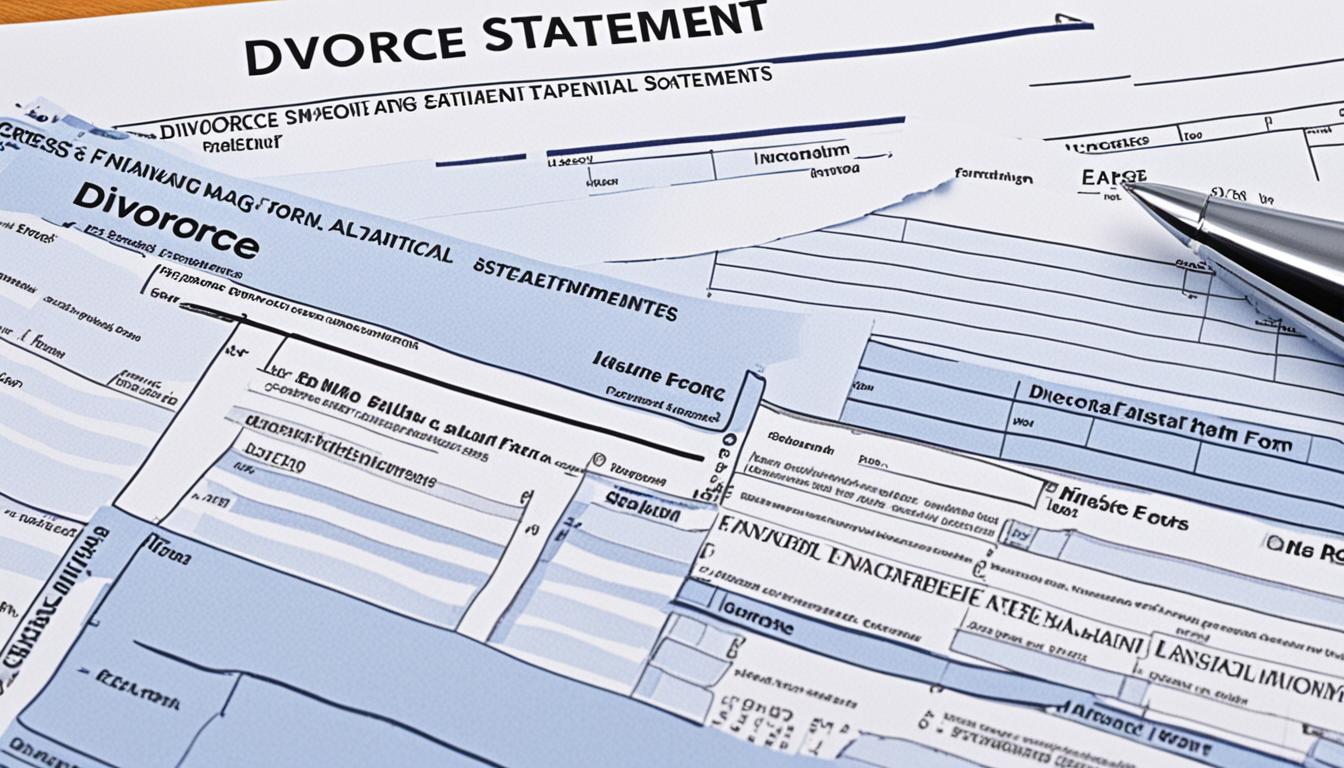After divorce, setting clear financial goals helps you regain stability and rebuild your future. Start by reassessing your financial priorities, updating your accounts, and creating a realistic budget. Focus on paying down debts, building savings, and establishing a solid retirement plan. Regularly review your progress and consider seeking professional advice for personalized guidance. With a strategic approach, you can lay a strong foundation for long-term financial security—continue to discover key steps to achieve your goals.
Key Takeaways
- Reevaluate current financial priorities and create a clear, achievable plan aligned with new circumstances.
- Assess and optimize retirement accounts, pensions, and investments to ensure long-term security.
- Develop a debt management strategy, focusing on paying down high-interest debts systematically.
- Establish a comprehensive budget and build an emergency fund to enhance financial stability.
- Seek professional advice regularly and stay focused on steady progress toward your financial goals.

Divorce can profoundly impact your financial stability, but it also offers an opportunity to redefine your financial goals. As you navigate this transition, it’s essential to reassess your financial priorities and create a clear plan for the future. One of your main focuses should be on establishing a solid foundation for retirement planning. Divorce can disrupt previous savings strategies, so now’s the time to evaluate your retirement accounts, pension plans, and investments. Determine what kind of retirement lifestyle you want and set achievable milestones to reach it. This might mean increasing your contributions, exploring new investment options, or adjusting your timeline to guarantee you’re on track. Remember, taking control now can make a significant difference in your financial security later in life. Regularly reviewing your financial affidavit and updating your financial information statement ensures your plans stay aligned with your current situation and can help you identify areas for improvement.
Divorce is an opportunity to rebuild your financial future through focused retirement planning and goal setting.
Debt management also plays a pivotal role in setting your new financial goals. Divorce often leads to shared debts, or even new financial burdens, which can feel overwhelming. To regain control, start by listing all your debts, including credit cards, loans, and any joint accounts. Develop a realistic plan to pay down these debts systematically, prioritizing high-interest accounts first. Consolidating or refinancing may be options worth exploring if they help reduce interest rates or simplify payments. Managing debt effectively not only improves your financial health but also frees up resources to focus on other goals like saving for your children’s education or building an emergency fund. Staying disciplined and avoiding new debt during this period is essential to restoring your financial stability.
Beyond debt management and retirement planning, it’s important to create a thorough budget that reflects your current income and expenses. Track your spending carefully and identify areas where you can cut back. Setting specific, measurable goals—like saving a certain amount each month—gives you a sense of direction and motivation. Building an emergency fund should be a priority, providing a safety net for unexpected expenses. As you work toward these goals, keep in mind that patience and consistency are key. Your financial situation will improve over time as you make steady progress. Seek professional advice if needed, whether from a financial planner or counselor, to help you stay on course and make informed decisions.
In essence, while divorce reshapes your financial landscape, it also paves the way for new growth and stability. Focus on retirement planning, manage your debts diligently, and establish a solid budget. With determination and a clear roadmap, you can build a secure financial future that aligns with your renewed goals and aspirations.
Frequently Asked Questions
How Soon Should I Start Planning My Financial Goals Post-Divorce?
You should start planning your financial goals as soon as possible after your divorce, considering timing considerations to facilitate a smooth transition. Prioritize your goals by focusing on immediate needs like housing and debt management, then move to long-term plans such as savings and retirement. The sooner you set clear, actionable goals, the better you’ll position yourself for financial stability and growth, helping you regain control and confidence post-divorce.
What Are Common Financial Pitfalls to Avoid After Divorce?
Like a dial-up modem, avoiding common financial pitfalls after divorce is essential. You should steer clear of neglecting asset division details and ignoring debt management, which can cause long-term strain. Don’t rush into new financial commitments or overlook updating beneficiaries and accounts. Be cautious with overspending, and always review your financial plans. Staying vigilant helps you build stability and prevents setbacks that could derail your fresh start.
How Can I Rebuild My Credit Score After Divorce?
To rebuild your credit score after divorce, start with credit repair by reviewing your credit report for errors and disputing inaccuracies. Make timely payments on existing debts, and consider debt consolidation to manage multiple accounts efficiently. Avoid opening unnecessary new accounts, and keep credit utilization low. Consistently practicing these steps helps improve your credit score, giving you greater financial stability and confidence moving forward.
Should I Seek Professional Financial Advice During This Transition?
Yes, seeking professional financial advice can be a wise step during this shift. A financial advisor helps you craft investment strategies and estate planning tailored to your new circumstances. They can illuminate your path forward, offering clarity and confidence as you rebuild. With expert guidance, you’ll navigate this chapter smoothly, making informed decisions that set a solid foundation for your financial future and bring peace of mind.
How Do I Balance Short-Term Needs and Long-Term Financial Stability?
You should prioritize building an emergency fund for immediate needs while also planning for long-term goals like retirement. Balance short-term needs by covering essentials and creating a budget, then set aside money for future stability. Regularly review your finances and adjust your savings to make certain you’re meeting both your immediate needs and retirement planning objectives. This approach helps you stay financially secure now and later.
Conclusion
Setting financial goals after divorce isn’t just about rebuilding; it’s about reclaiming your independence, restoring your confidence, and redefining your future. It’s about creating stability, fostering growth, and embracing new opportunities. By setting clear, realistic goals, you take control of your financial destiny. Remember, every step forward is a step toward a brighter tomorrow. Stay committed, stay focused, and keep moving forward—because your financial future is yours to shape.










